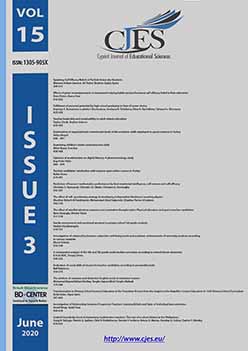Opinions of academicians on digital literacy: A phenomenology study
Opinions of academicians on digital literacy: A phenomenology study
Author(s): Ezgi Pelin YildizSubject(s): Education, ICT Information and Communications Technologies
Published by: Birlesik Dunya Yenilik Arastirma ve Yayincilik Merkezi
Keywords: Digital literacy; Academics; 0pinion; Phenomenology Study;
Summary/Abstract: Social media has become an indispensable part of our lives in recent days, in which a new concept has emerged. This concept is Digital Literacy. We can define digital literacy as the ability to produce information using digital technologies. Digital literacy skills are among the most important skills that individuals should have in our age. Today, children are introduced to digital tools and started to use, before learning, to read and write. According to the researches, teachers and/or academics are not able to keep up with this digital progress of the new generation, but they fall behind. In this context, teachers and/or academics are expected to use digital tools effectively and have digital literacy skills in order to keep up with the digital transformation. The aim of this study is to apply the opinions of academicians about the concept of digital literacy which is rapidly entering our lives and to reveal the level of awareness about the related concept. Phenomenology design, one of the qualitative research methods, was used in the study. Phenomenology is a research design that is used to reveal cases that we are aware of but we do not have in-depth knowledge of it. For research purposes, the sample of the research consists of 10 academicians working as lecturers in various departments with a Vocational School of Technical Sciences of a university in Turkey. As a data collection tool, Semi-Structured Interview Form on Digital Literacy developed by Kozan (2018) was used with the permission of the researcher. In the context of the conceptualisation of the collected data, the thematic content analysis method was used. At the end of the study, it was revealed that all of the academicians who are working in the study group are familiar with the concept of digital literacy and they are ready to participate in the training to be given to them by relevant institutions and organisations.
Journal: Kıbrıslı Eğitim Bilimleri Dergisi
- Issue Year: 15/2020
- Issue No: 3
- Page Range: 469-478
- Page Count: 10
- Language: English

